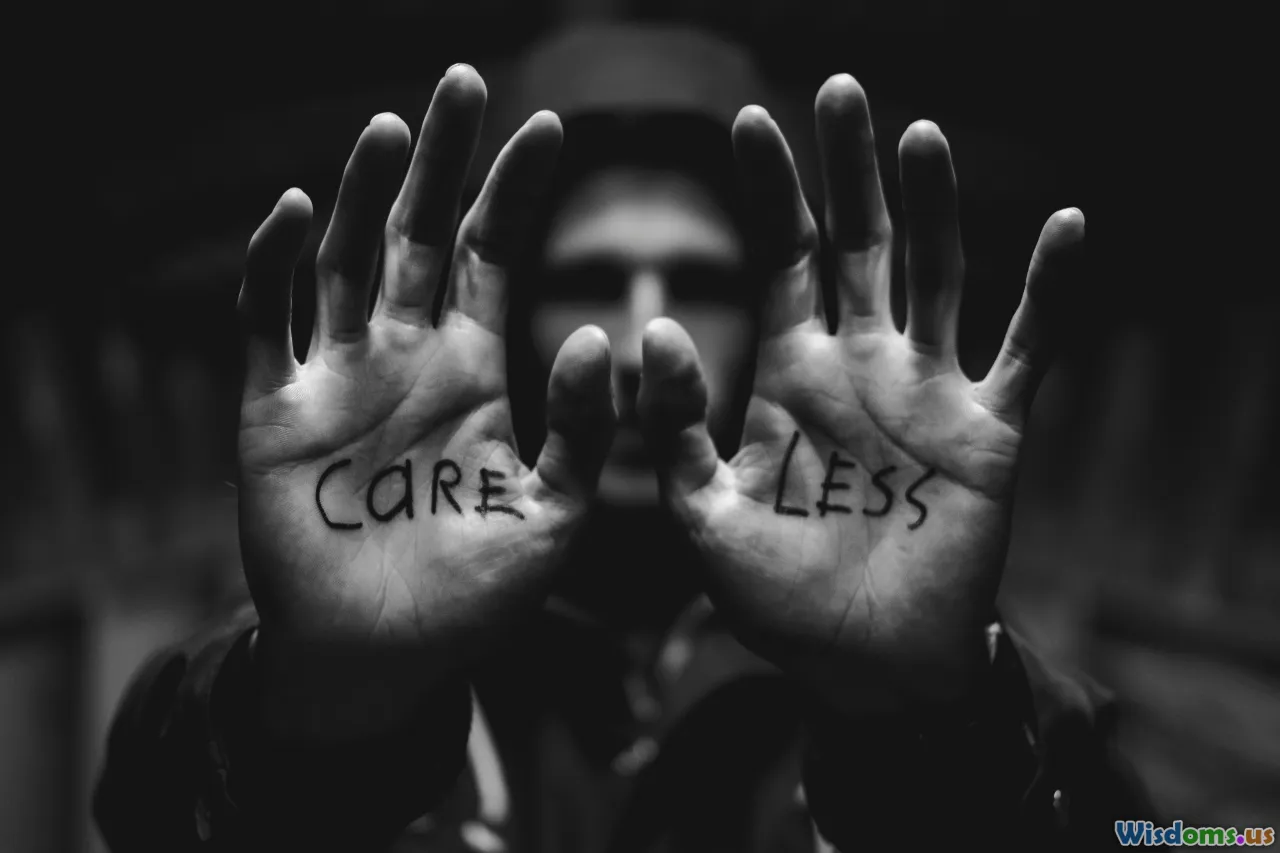
Do Shared Secrets Deepen Relationships
15 min read Explore how sharing secrets can strengthen emotional bonds and deepen trust in relationships, with psychological insights and real-life examples. (0 Reviews)
Do Shared Secrets Deepen Relationships?
Trust is the bedrock upon which relationships are built, whether between lifelong friends, romantic partners, or close-knit teams. While laughter, empathy, and shared interests contribute significantly, there exists a subtler—often powerful—force: the sharing of secrets. What compels us to reveal private thoughts to some while withholding them from others? More importantly, does exchanging secrets truly deepen bonds, or does it simply create a temporary illusion of closeness?
The Psychology Behind Secret-Sharing

Humans are inherently social beings, wired to seek connection and understanding. According to psychologist Michael Slepian, a leading researcher on secrets at Columbia University, sharing a secret signifies vulnerability. When a person entrusts another with sensitive information, they are implicitly saying, “I trust you enough with a part of myself that the world rarely sees.”
Secrets Signal Trust and Selectivity
Consider the difference between chatting with a colleague about the weather and confiding in them about your anxieties regarding a major presentation. The latter isn’t just information exchange—it’s an act of trust. Secrets are typically shared selectively, forming what sociologists call "dyadic boundaries." By crossing those boundaries, one signals a level of intimacy that excludes others.
Example: Family Ties and Coming Out
Coming out as LGBTQ+ is one of the most researched and personal revelations. Studies repeatedly show that sharing this identity with a trusted friend or family member (rather than everyone) deepens that specific bond, providing a safe confidant and emotional support system during a vulnerable life change.
How Sharing Secrets Strengthens Emotional Bonds

When two people share secrets, they create a unique private world—a “we know something they don’t” scenario. Such exclusive knowledge isn’t merely gossip; it fosters solidarity. Secrets function as social glue in both friendships and romantic partnerships.
Reciprocal Vulnerability
One of the foundational studies in social psychology, Arthur Aron’s “36 Questions That Lead to Love,” proved just that. Stranger pairs who answered increasingly personal questions, culminating in secrets, emerged from the experiment much closer—even in a single sitting. The process of reciprocal vulnerability—where each participant reveals something and gets something in return—quickly forges trust.
Shared Secrets in Romantic Relationships
In romantic relationships, confiding personal fears, past mistakes, or dreams both big and small substantially boosts relationship satisfaction. Dr. John Gottman’s research with long-term couples identifies emotional attunement—closely tied to sharing inner worlds—as a predictor of relationship resilience. Couples who regularly share secrets about their feelings and pasts feel safer and more emotionally connected.
Example: Rebuilding Trust After Conflict
One telling case is of partners who, after a breach of trust like infidelity, began to rebuild their intimacy through honest conversations about vulnerabilities—including secrets previously withheld. Therapists found this process vital for genuine recovery.
When Can Shared Secrets Harm Relationships?

As potent as secret-sharing can be, it isn’t universally positive. Secrets—especially those with negative or damaging content—can foster guilt, anxiety, or codependency if not handled carefully.
The Burden of Knowing
Consider being told a friend’s deep secret about illegal activity, family trauma, or infidelity. The news may forge a bond, but it can also feel like a millstone. You now carry not only the secret but also responsibility for the friend’s emotional wellbeing and potentially difficult ethical decisions.
Example: The Confidante’s Dilemma
A classic dilemma occurs when one friend confides about substance abuse, swearing their confidant to secrecy. The confidant is torn between protecting the friend’s trust and concern for their safety. Such secrets can stress relationships, revealing that intimacy and ethical obligations do not always align.
Secrets that Exclude or Isolate
Secrets about others—like shared gossip or conspiracies—may teeter into damaging territory. Social psychologist Judith Harris notes that friend groups stratified by secrets are more prone to rifts and fallouts. Individuals left out frequently feel marginalised, fostering resentment and mistrust.
Distinguishing Between Healthy and Unhealthy Secrets

Not all secrets are created equal. A healthy secret might be a private hope or childhood embarrassment, while an unhealthy one may involve ongoing behaviors that endanger self or others.
Assessing the Nature of the Secret
Seasoned relationship therapists encourage people to reflect on the nature of the secrets they share:
- Protective Secrets: Kept to preserve someone’s dignity or avoid unnecessary pain, e.g., withholding a family’s embarrassing incident from the wider group.
- Destructive Secrets: Conceal harmful behaviors such as addiction, abuse, or betrayal.
- Intimacy-Building Secrets: Share inner dreams, quirky preferences, or past failures that reveal the authentic self.
When Should Secrets Stay Private?
Privacy is distinct from secrecy. Maintaining personal boundaries does not mean one is hiding; withholding parts of oneself is essential for autonomy. Brene Brown, an authority on vulnerability, argues that sharing should always be "earned through trust"—not given indiscriminately.
Example: Workplace Boundaries
Many professionals share workplace woes with close friends but carefully separate those discussions from their professional roles. Judiciousness is key; not all colleagues can be trusted with personal information, and oversharing at work may backfire.
Actionable Strategies: Sharing Secrets to Deepen (Not Damage) Bonds

If you wish to use secret-sharing to bring someone closer, doing so thoughtfully is essential. Here are evidence-backed approaches:
1. Start Small and Observe Reactions
Testing trust gradually is prudent. Share modest personal anecdotes before divulging anything deeply personal or potentially risky. Notice how the other responds—do they honor your trust and reciprocate?
- Tip: Watch for genuine empathy and discretion; if these are absent, reconsider before deeper disclosures.
2. Practice Active Listening
Should someone share with you, listen without judgment. Avoid shifting the spotlight back to yourself or making light of their disclosure.
- Example: Non-verbal affirmation—nodding, eye contact—shows respect. Paraphrasing back can demonstrate understanding—“That sounds really tough, and I appreciate you telling me.”
3. Establish Boundaries and Consent
Before confessing something significant, set the context: “I want to tell you something in confidence—is that okay?” This not only secures consent but signals the importance of discretion on the other’s part.
4. Distinguish Between Secrecy and Privacy
There is a healthy difference between keeping secrets for connection versus withholding truth to manipulate or avoid responsibility. Ensure your motive is about openness, not control.
5. Respect the Burden
If entrusted with a secret, consider your ability to keep it without anxiety. If the burden is too heavy, communicate honestly rather than struggle in silence—and remember, ethical responsibilities (e.g., safety) may require you to act.
6. Periodic Check-Ins
Circle back to your confidant: "Is it still okay that I shared that? Does this affect you in any way?" Revisiting boundaries fosters continued trust.
Secrets as Catalysts for Group Loyalty

Secret-sharing isn’t limited to dyadic relationships. Teams and groups bond over "insider knowledge," rituals, or private jokes, cultivating camaraderie.
Rituals and Shared Experience
Sports teams, for example, often have initiation practices understood only by members, creating a sense of shared identity. Exclusive knowledge—be this an inside joke, unwritten tradition, or event few know about—reinforces group loyalty.
Example: Inside Jokes Among Friends
A group of university friends giggles over a "pineapple incident” that befell them in freshman year—no outsider understands. The inside joke is a private badge of belonging, a memory connecting just those who were present.
Caution with Group Secrets
While group secrets can be benign, exclusionary secrets risk social fragmentation. Workplace cliques, for example, can foster divisions through hidden alliances or gossip, eroding morale and teamwork.
Digital Communication and Secret-Sharing

In the digital era, secret-sharing has expanded beyond whispered confessions or handwritten diaries.
Texts, Apps, and True Privacy
From disappearing messages (Snapchat, Signal) to private group chats, technology makes secret-sharing instantaneous—and, at times, risky. While digital platforms can connect distant friends, they lack the nonverbal cues that foster genuine trust, making misunderstandings more likely.
Example: Secrets Gone Viral
A cautionary tale: a screenshot of a supposedly private group chat ends up public, damaging reputations or friendships. Unlike spoken secrets, digital records can be copied, forwarded, or exposed instantly.
Advice for Digital Secret-Keeping
- Verify trust before sharing in writing.
- Use secure, private channels.
- Remember: Even encrypted apps cannot erase trust once broken.
The Paradox: When Secrets Both Deepen and Distance

Secrets possess a paradoxical quality. While sharing can draw two people closer, keeping a significant secret (such as hiding infidelity) can create emotional distance. Relationship researchers highlight that "concealment fosters separation; confiding fosters connection."
Navigating Ambiguity
There are times when revealing a secret is weighed against potential costs. Disclosing a chronic illness, for instance, may risk pity or misunderstanding, yet honest sharing often brings only relief and greater support from loved ones.
Example: Hidden Grief
A parent conceals the intensity of grief after a loss, fearing to burden their child. Yet, when finally disclosed, the family is drawn together in mutual healing.
Building a Culture of Trust Through Transparency

In settings ranging from families to organizations, fostering a climate where secrets are rare—not because people hide less, but because the need to hide decreases with growing openness—proves healthiest.
Leadership by Example
Teams flourish when leaders balance transparency with discretion. Open-door policies, regular check-ins, and candid conversations remove much of the secrecy that breeds suspicion and mistrust.
Example: Radical Candor at Work
Companies like Google or Netflix have adopted "radical transparency" models, encouraging employees to speak up without fear. Slack channels for executive Q&A, anonymous suggestion boxes, and candid feedback todos enliven group trust and minimize damaging secrets.
Family Traditions for Sharing
Families that hold regular talks or rituals for sharing “what’s on your mind” cultivate openness. The writer Cheryl Strayed credits her family’s yearly retreat to "tell one secret each" for uncommonly deep ties.
Secrets aren’t inherently good or bad—they are relational tools. Like any tool, their power lies in how and why they are wielded. To deepen relationships, share thoughtfully. Choose confidants wisely. Remember, the bravest intimacy comes not just from baring our hearts, but from creating spaces where trust—and secrets—can be safely kept.
Rate the Post
User Reviews
Popular Posts



















